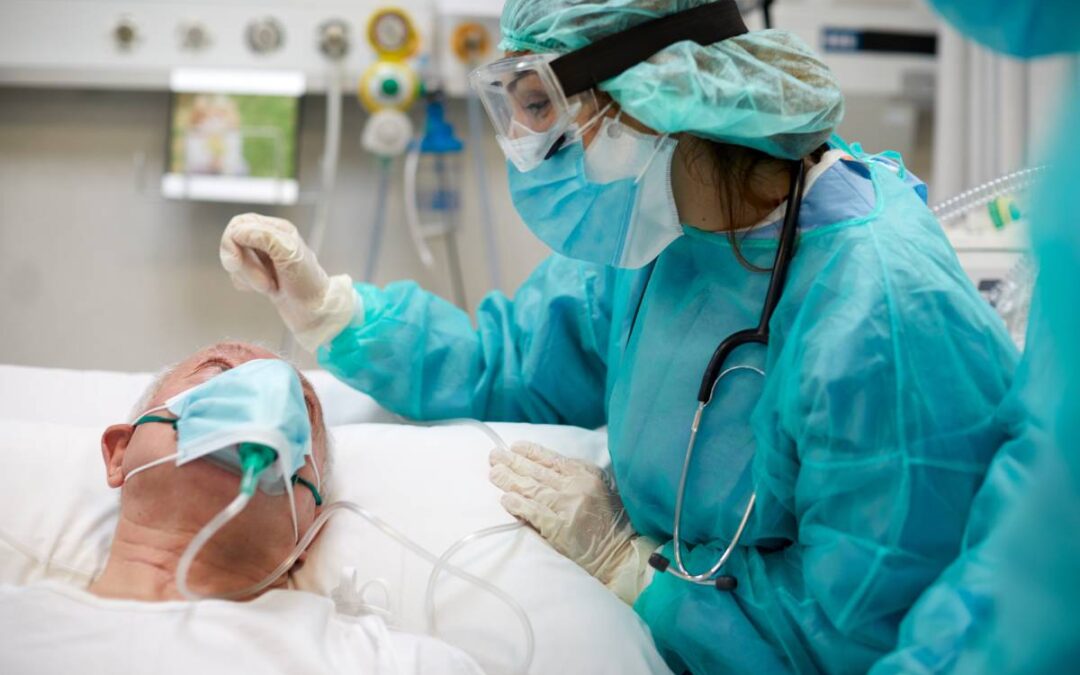At least 28 million elective operations were delayed during the first three months of the COVID-19 pandemic [1]. Over the course of the pandemic, the number of patients requiring surgery after a previous COVID-19 diagnosis has only continued to increase [1]. Determining the optimal timing of surgery for patients who have recovered from COVID-19 infection has been challenging due to a lack of existing recommendations on perioperative considerations for these patients [2].
Currently, there is limited research that addresses the timing of surgery after having recovered from a COVID-19 infection [2]. In an effort to provide hospitals with some guidance, the American Society of Anesthesiologists (ASA) and the Anesthesia Patient Safety Foundation (APSF) released a joint statement on elective surgeries for patients after COVID-19 infection [2]. The proposed guidelines recommend that all non-urgent procedures be delayed until the patient is no longer able to transmit COVID-19 infection and has entered the recovery phase of the illness [2].
Research has shown that operating on patients with an active COVID-19 infection is associated with a high pulmonary complication and mortality rate [1]. The significantly higher risk of pulmonary complications and perioperative mortality remains for four weeks after COVID-19 diagnosis [1]. Other independent risk factors for pulmonary complications include low preoperative arterial oxygen saturation, age, preoperative anemia, and surgical duration of at least two hours [4]. These independent risk factors should be taken into account in the preoperative assessment of the patient to reduce the risk of postoperative complications [4].
The anesthesiologist and surgeon must jointly agree to proceed with surgery for a patient who has recovered from COVID-19 [2]. According to the guidelines released by the ASA and APSF, wait times from the date of COVID-19 diagnosis to surgery depends on the patient’s severity of illness and past medical history [2]. Patients who were asymptomatic or only experienced mild, non-respiratory symptoms are advised to wait four weeks before scheduling surgery [2]. Patients who were symptomatic (cough, dyspnea, fever, myalgia, etc.) but did not require hospitalization are advised to wait six weeks [2]. Patients who experienced symptoms, are diabetic or immunocompromised, or were hospitalized are recommended to wait eight to ten weeks [2]. Finally, patients who were admitted to an intensive care unit due to COVID-19 infection are advised to wait twelve weeks [2].
These timelines are not considered to be definitive, since it is important to assess each patient’s perioperative risk individually [2]. A thorough preoperative evaluation should be scheduled that gives special attention to the cardiopulmonary system [2]. Regarding preoperative COVID-19 testing, the CDC does not currently recommend re-testing for COVID-19 within 90 days of symptom onset [2]. If the 90-day period has ended, the patient should undergo one preoperative nasopharyngeal PCR test less than three days prior to surgery [2].
After surgery, patients who previously were diagnosed with COVID-19 should be carefully monitored [3]. Residual symptoms like fatigue, dyspnea, and angina are common in patients who have recovered from COVID-19 [3]. One study found that in patients who had recovered from COVID-19, 87.4% reported persistence of at least one symptom [3].
References
- COVIDSurg Collaborative. (2020). Delaying surgery for patients with a previous SARS‐CoV‐2 infection. BJS, 107, e601–e602. doi:10.1002/bjs.12050
- ASA and APSF Joint Statement on Elective Surgery and Anesthesia for Patients after COVID-19 Infection. (2021). https://www.asahq.org/about-asa/newsroom/news-releases/2020/12/asa-and-apsf-joint-statement-on-elective-surgery-and-anesthesia-for-patients-after-covid-19-infection
- Carfì, A., Bernabei, R., & Landi, F. (2020). Persistent Symptoms in Patients After Acute COVID-19. JAMA, 324(6), 603. doi:10.1001/jama.2020.12603
- Canet, J., Gallart, L., Gomar, C. et al. (2010). Prediction of Postoperative Pulmonary Complications in a Population-based Surgical Cohort. Anesthesiology, 113(6), 1338-1350. doi:10.1097/aln.0b013e3181fc6e0a







Recent Comments